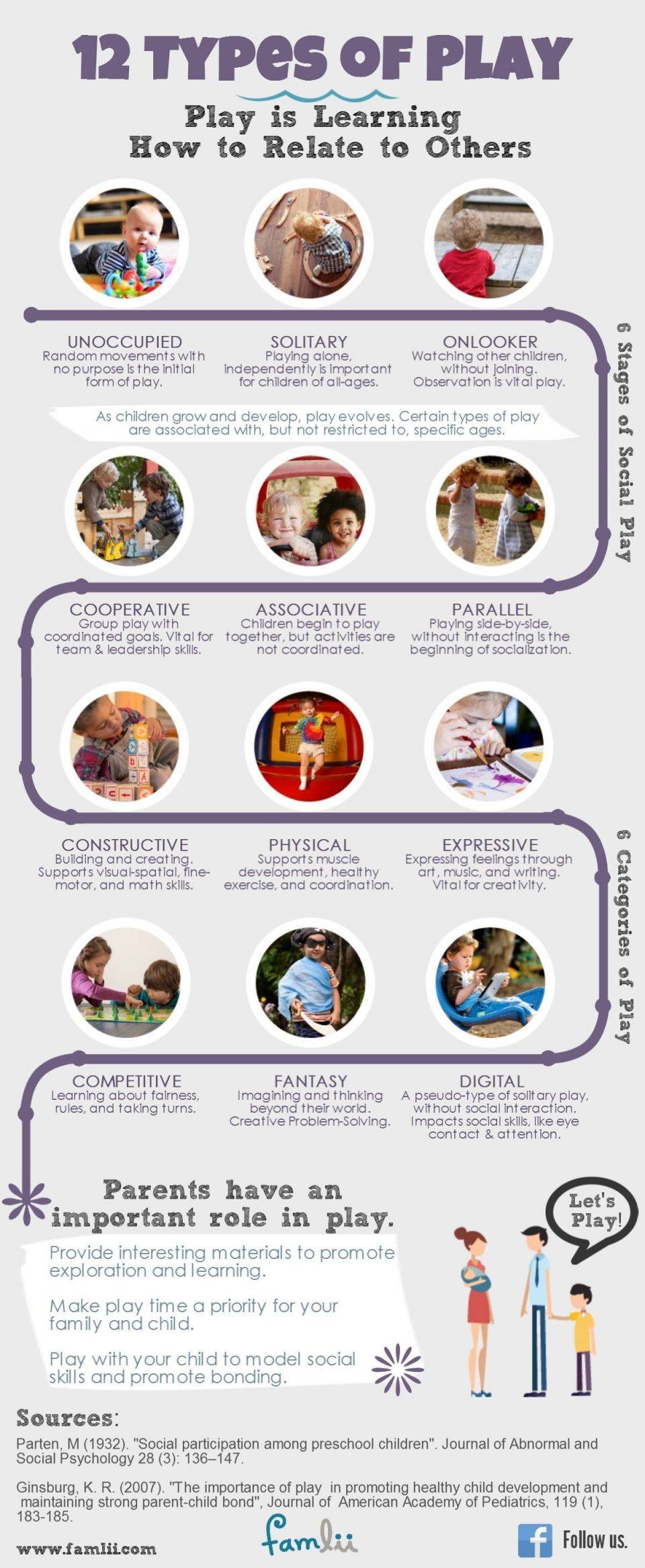12 Types of Play Infographic
The 12 Types of Play Infographic depicts how play is essential to all children’s development and learning. As children grow and develop, play evolves.
Researcher Mildred Parten defined play as six Stages of Social Play which emphasize the idea that play is about learning how to relate with other children and parallels a child’s social development.
Parten’s Social Stages of Play include:
- Unoccupied play, the initial form of playing in babies.
- Solitary play, where children do not seem to notice others and play alone.
- Onlooker play, when children intently observe other children playing, without engagement.
- Parallel play, an important type of play for toddlers, where children play side-by-side without interacting.
- Associative play, when children start socializing with other children, without formal rules or organization.
- Social play, when children begin to share toys and ideas, and follow established social conventions.
The Categories of Play illustrate the importance of intellectual, physical, and emotional learning through various activities of play.
- Physical Play includes active games such as tag, and motor activities such as running and jumping.
- Constructive Play involves building and creating where children learn problem solving skills and fine motor skills, such as Lego building.
- Expressive Play helps children learn to express feelings and emotions while developing creativity.
- Fantasy Play allows children to expand their imagination and develop abstract thinking.
- Cooperative Play teaches leadership, group interaction, and social conventions.
- Digital Play includes computer-based activities which impact children’s attention span and social skills.
Through play, children learn to socialize, to think, to solve problems, to explore the world, and most importantly, to have fun as an emotional outlet. Parents play a critical role in play by providing active support, engaging materials, and making play a priority for their children and family.
See also:







You can adjust your cookie preferences here.